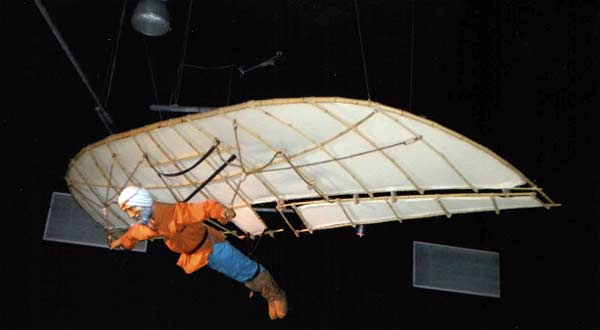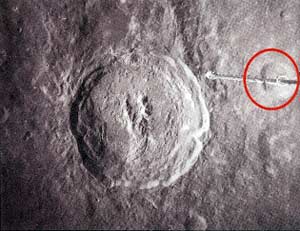A period stretching over 700 years witnessed the Islamic world making scientific progress; a period unprecedented in the last three millennium. At the beginning of that era, Baghdad was the centre of Scientific World, Qutuba Al-Andalus (Cordoba, Spain) became one of the learning centres of the Muslim world, and Europe was languishing in its dark ages. During the European dark ages the international language of science was Arabic. Many rulers and caliphs who supported scholarship and science were also the most cultured, passionate and enthusiastic human beings. They not only advanced the openness towards other religions and cultures but provided a vibrant sense of optimism and freedom of expression. Cordoba’s greatest years of glory were from 756 to 1031 when it was the capital of al-Andalus. The progressive growth provided increasing importance for Cordoba and made it the largest and greatest city in Europe by the 10th century, dazzling with its social and multicultural activities, with Muslims, Jews, and Christians mingling at all levels.
The people were awed by the splendour and magnificence of the caliph’s court and the city of Cordoba, a city that had narrow, cool and paved streets, known for their cleanliness; public lighting; luxurious villas; indoor plumbing for real water closets along the banks of the Guadalquivir river; patios, gardens, fountains and public baths.
The activity of buying and selling was organised, like the market places in Moroccan towns, by areas or streets. Those selling perfumes and spices were allowed to trade outside the mosques, but sellers of aromatic goods were moved off to outer areas. The skilled artisans and agricultural infrastructure converted Cordoba into a booming economy. It became famous for its leather and metal work, glazed tiles and textiles. A variety of agricultural goods introduced by Muslims to Europe were astonishingly delicious. They were oranges, lemons, limes, watermelons, figs, pomegranates, almonds, bananas, artichokes, eggplants, spinach, sugar-cane on the side of herbs and spices such as cumin, caraway, coriander, fennel, mint, parsley, cloves and nutmeg. In addition to this there were cash crops such as cotton, flax and silk.
 In Cordoba pursuit of knowledge and the power of words were taken seriously providing an atmosphere conducive to demonstrating your power to express your thoughts, convert them into actions and show accomplishments. The books on medicine, mathematics, astronomy, botany that were available in Cordoba by constant contact with Baghdad were far in advance of anything that the rest of Europe had to offer.
In Cordoba pursuit of knowledge and the power of words were taken seriously providing an atmosphere conducive to demonstrating your power to express your thoughts, convert them into actions and show accomplishments. The books on medicine, mathematics, astronomy, botany that were available in Cordoba by constant contact with Baghdad were far in advance of anything that the rest of Europe had to offer.
In this great city, Cordoba, people not only benefited from the knowledge available there, but also gave things to the world which it had not seen. Abbas Ibn Firnas was one such person who made contributions to human society. He is well known for his attempts at human flight in the ninth century, a great idea and an event in human experience.
Abbas ibn Firnas was a symbol of creativity and ingenuity. His ideas and creations allowed his generation and also the later generations to prosper and develop civilization, bringing countries and people closer to each other, and impacting human lives in the past and present.
Abbas ibn Firnas was a genius who designed a water clock called al-Maqata. He conceived and developed a process for manufacturing transparent and colourless glass and invented various kinds of glass planispheres, which can be described as a map of half or more of the sky globe with a window showing only the part of the sky that is visible at any one point in time. He made corrective lenses, calling them reading stones; invented a machine resembling the astrolabe and had the ability to monitor the sun, moon, stars and planets, and their circuits and orbits. This machine known as the “chain of rings” simulated the movement and ascending and descending nodes of these astronomical bodies. He also developed a process for cutting rock crystal that allowed Spain to stop exporting quartz to Egypt to be cut. He dedicated a room in his house for simulating stars, clouds, thunder, and lightning and located the mechanisms in the basement of his house. He also contrived a metronome instrument for measuring time with sound to determine the times of Islamic prayers, sunrise and sunset.
Abbas Ibn Firnas was born in Ronda, southern Spain, in 810 and lived in Cordoba. His greatest achievement is in the field of aviation. He was not only the first man to conceive of flight but the first man to attempt controlled flight – a first in the field of aviation. He devoted himself to studying birds and ended up designing a machine of silk and feathers which looked like a huge wing-like cloak parachute. His design was a hang-glider that had two sets of wings to adjust altitude and direction. In 875 at the age of 65 Ibn Firnas attempted to fly using this machine and launched himself from a mountain and managed to do a full circuit and stayed aloft for ten minutes in the skies near Cordova, Spain. However, because of the lack of mechanism for landing, the flight resulted in him crash-landing and injuring his back.
Abbas Ibn Firnas, the name that was almost forgotten in the West, was finally recognised, and now is being remembered as the name of a man who gave us wings, made history in the field of aviation. In 1976, in recognition of the accomplishments of Abbas ibn Firnas, the Working Group for Planetary System Nomenclature (IAU/WGPSN) named a moon crater Ibn Firnas in his honour. He is considered a hero by the Muslim world. Baghdad’s northern airport is named Ibn Firnas airport in honour of the first man to fly. Recently a bridge was constructed in Cordoba called the Abbas Ibn Firnas Bridge, a final recognition from his home country.
Abbas ibn Firnas was a polymath: an inventor, engineer, aviator, physician, Arabic poet, and Andalusian musician. The past glory will never return to Cordoba but the world would continue to witness the soaring wings of Abbas ibn Firnas in the skies of this planet.
[MOHAMMAD YACOOB is a retired industrial engineer and engineering proposals analyst who lives in Los Angeles, California]


